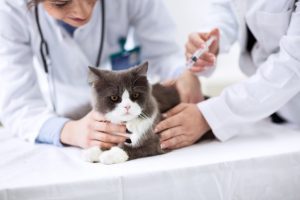
Dogs taught individually to perform labor or carry out jobs for those with disabilities are known as service dogs. Service animals are working animals, not pet animals. The task or work the dog is taught to perform must be directly linked to the individual’s impairment.
Service dogs must feel an emotional connection to their human partner since they assist humans with day-to-day tasks. They can deliver people medicine or turn off lighting and open and lock doors and do a range of other duties to simplify the lives of their human companions. Service dogs allow their human counterparts to take part in community activities; hence they have the capacity to increase independence. Service dogs are one-of-a-kind animals, and they require extensive preparation and in-depth training.
Wonderful Ways on How Service Dogs Save Lives
Some of the duties that service dogs can perform are the following: guide blind people, alert deaf people, pull a wheelchair, notify and monitor a person experiencing seizures, remind a person who has a mental illness to take prescribed medicines, and help a person during an anxiety attack. A few of the various kinds of service dogs and their unique roles in helping people are described in more detail below.
1. Hearing Dogs
Hearing dogs are trained to notify deaf and hearing-impaired owners of essential noises that they could otherwise miss, including doorbells, alarm clocks, fire alarms, and crying babies. For your small pet’s veterinary needs, you need to contact a reputable facility like Monte Vista Small Animal Hospital for their specialization in small animals.
2. Guide Dogs
Guide dogs are one of the most well-known service canines; they are taught to be responsive to environmental signals and help them stay clear of obstacles and move safely. They are specially trained to maneuver around hazards such as staircases, curbs, inclines or dips, elevators, escalators, and even doors.
3. Medical Alert Dogs
Medical alert dogs utilize their extraordinary sense of smell to recognize any issues with their owners. They can notify their owners when seizures are about to happen. A diabetic alert service dog will inform the human of any changes in blood sugar.
4. Autism Service Dogs
Families with children who are autistic are the primary users of these canines. They’ve had special training to assist children with autism when dealing with everyday situations that could be difficult for them. They’re also taught to offer deep pressure to their handlers with autism, which helps them relax when they’re stressed. They can provide people with autism with a sense of security and comfort and enhance their emotional control and confidence.
Emergency measures for pets are also vital like for humans, you need to contact a veterinarian with emergency services to be ready when the time comes.
5. Mobility Support Dogs
People with spinal cord issues, arthritis, or brain injuries could need assistance with mobility. They are service dogs who aid individuals in moving from one place to the next. These canines have been taught to do various walks, retrieve lost items, and open and close doors. If an emergency strikes, you need to be ready to put your pet in a dog boarding facility. It is to ensure that your pet is well taken care of while you are away.
6. Psychiatric Service Dogs
Psychiatric care dogs help persons with mental illnesses in various ways. These include mental health problems such as anxiety, depression, and PTSD. Amazingly, dogs can tell whether their owners will suffer anxiety attacks or flashbacks. Apart from reminding their human companion to take medicine, the psychiatric service dogs assist in managing flashbacks and nightmares.
7. Allergy Detection Dogs
While some allergies are minor, others can cause serious health issues and even death. The dogs that detect allergies inform their handlers of potential triggers. These dogs are trained to identify allergens like gluten and peanuts, then notify their handlers. They allow children with food allergies to be more confident. They can also protect children from harmful reactions, assuring parents.









